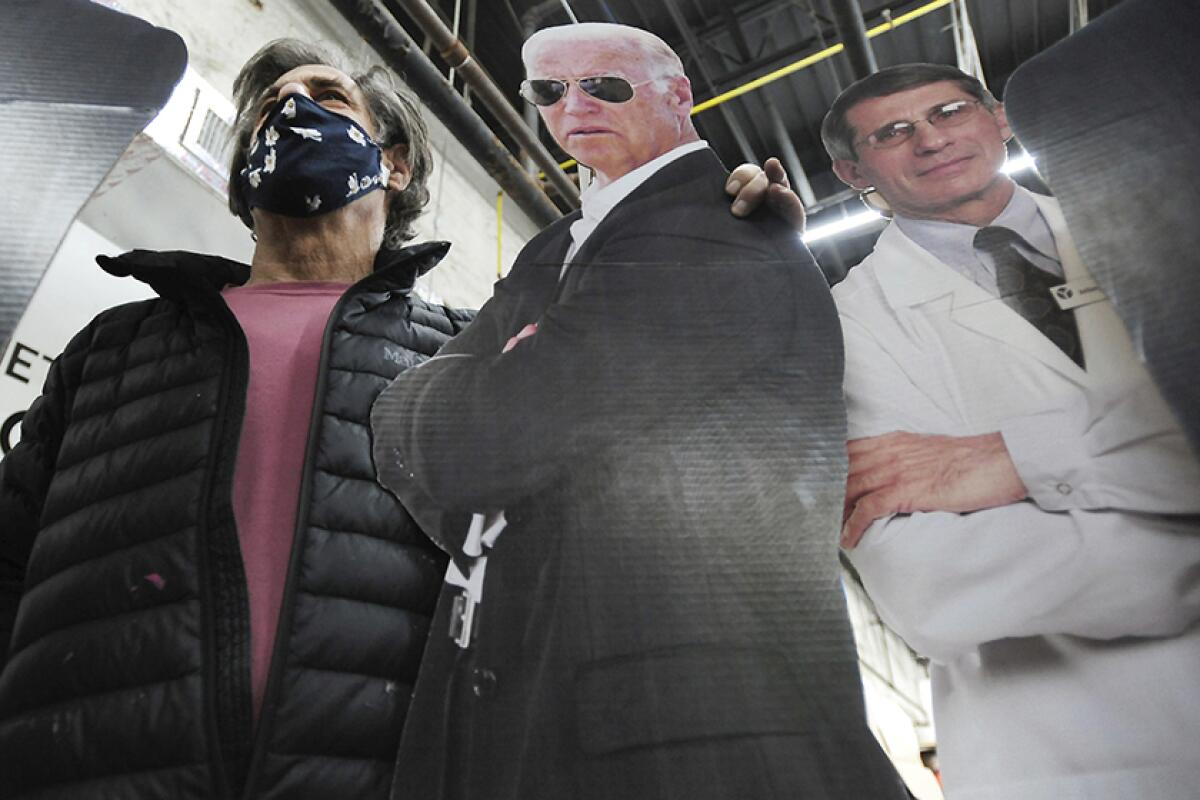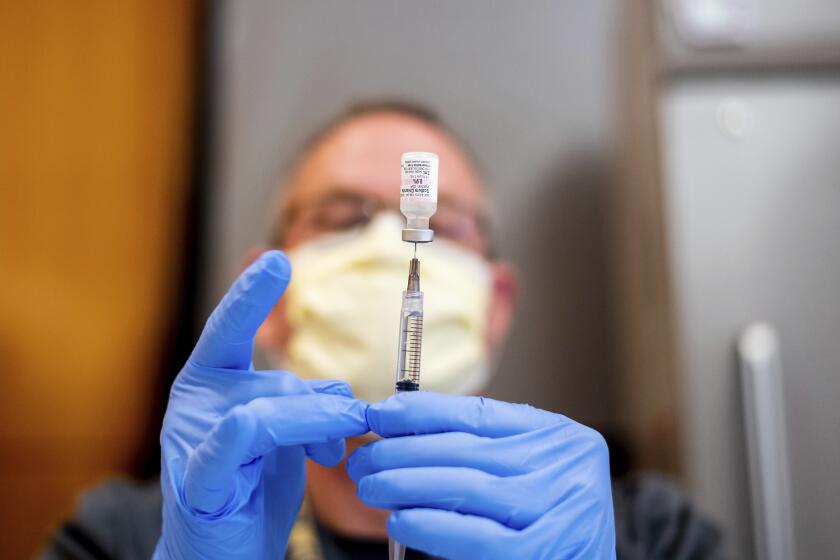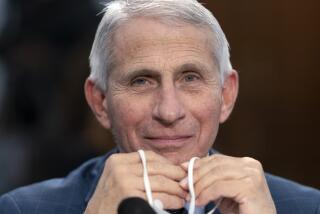Fauci lays out Biden’s support for WHO after Trump criticism

- Share via
GENEVA — The United States will resume funding for the World Health Organization and join its consortium aimed at sharing coronavirus vaccines fairly around the globe, President Biden’s top advisor on the pandemic said Thursday, renewing support for an agency that the Trump administration had pulled back from.
Dr. Anthony Fauci’s quick commitment to the WHO — whose response to the coronavirus outbreak was repeatedly berated by the Trump administration — marks a dramatic and vocal shift toward a multilateral approach to fighting the pandemic.
“I am honored to announce that the United States will remain a member of the World Health Organization,” Fauci said. Just hours after Biden’s inauguration on Wednesday, his administration announced the U.S. will revoke a planned pullout from the WHO in July that had been announced by the Trump administration.
Fauci said the Biden administration “will cease the drawdown of U.S. staff seconded to the WHO” and resume “regular engagement” with the WHO. “The United States also intends to fulfill its financial obligations to the organization,” he added.
Coronavirus mutations are on the rise. The longer it takes to vaccinate people, the more likely we’ll see a variant that eludes our tests, treatments and vaccines.
Just hours after Biden’s inauguration Wednesday, he wrote a letter to U.N. Secretary-General Antonio Guterres saying the U.S. had reversed the planned pullout from the WHO that was expected to take effect in July.
The withdrawal from the WHO was rich with symbolism — another instance of America’s go-it-alone strategy under Trump. But it also had practical ramifications: The U.S. halted funding for the U.N. health agency — stripping it of cash from the country that has long been its biggest donor just as the agency was battling the health crisis that has killed more than 2 million people worldwide. The U.S. had also pulled back staff from the organization.
Fauci said the Biden administration would resume “regular engagement” with WHO and will “fulfill its financial obligations to the organization.”
The WHO chief and others jumped in to welcome the U.S. announcements.
“This is a good day for WHO and a good day for global health,” Director-General Tedros Adhanom Ghebreyesus said. “The role of the United States, its role, global role is very, very crucial.”
The two men hinted at a warm relationship, with Fauci calling Tedros his “dear friend” and Tedros referring to Fauci as “my brother Tony.”
John Nkengasong, director of the Africa Centers for Disease Control and Prevention, called it “great news” in an email. “The world has always been a better place when the U.S. plays a leadership role in solving global health problems including the fight against HIV/AIDS, malaria, polio and other diseases,” he said.
Danish Health Minister Magnus Heunicke wrote on Facebook: “This is going to have a huge impact on the world’s ability to fight the pandemic. It is decisive that the United States is involved as a driving force and not a country that is looking for the exit when a global catastrophe rages.”
Fauci also said Biden will issue a directive Thursday that shows the United States’ intent to join the COVAX Facility, a project to deploy COVID-19 vaccines to people in need around the world — whether in rich or poor countries.
Under Trump, the U.S. had been the highest-profile — and most deep-pocketed — holdout from the COVAX Facility, which has struggled to meet its goals of distributing millions of vaccines both because of financial and logistic difficulties.
The WHO and leaders in many developing countries have repeatedly expressed concerns that poorer places could be the last to get COVID-19 vaccines, while noting that leaving vast swaths of the global population unvaccinated puts everyone at risk.
While vowing U.S. support, Fauci also pointed to some key challenges facing the WHO. He said the U.S. was committed to “transparency, including those events surrounding the early days of the pandemic.”
One of the Trump administration’s biggest criticisms was that the WHO reacted too slowly to the outbreak in Wuhan, China, and was too accepting of and too effusive about the Chinese government’s response to it. Others have also shared those criticisms — but public health experts and many countries have argued that, while the organization needs reform, it remains vital.
Referring to a WHO-led probe looking for the origins of the coronavirus by a team that is currently in China, Fauci said: “The international investigation should be robust and clear, and we look forward to evaluating it.”
He said the U.S. would work with the WHO and partner countries to “strengthen and reform” the agency, without providing specifics.
More to Read
Sign up for Essential California
The most important California stories and recommendations in your inbox every morning.
You may occasionally receive promotional content from the Los Angeles Times.











